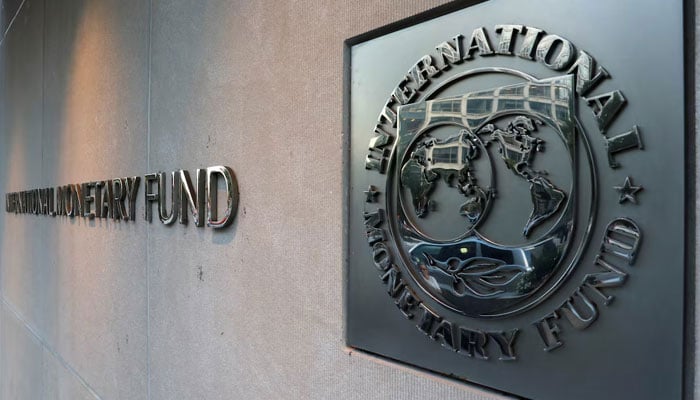Refinery upgrade jeopardised POL sales tax proposal rejected
Fund asked government to increase sales tax on POL products to 18 percent instead of 1-2 percent.
ISLAMABAD: In an unexpected development, the International Monetary Fund (IMF) has rejected the government’s proposal seeking to impose 1-2 percent sales tax on petrol, HSD, Kerosene oil and LDO by doing away with the sales tax exemption imposed in the financial bill for FY2025.
The Fund asked the government to increase sales tax on POL products to 18 percent instead of 1-2 percent.
“The 18 percent sales tax will increase the price of petrol by Rs45 per litre which the sitting regime cannot afford.
Furthermore, this has jeopardised the initiation of $5-6 billion upgrade project of local refineries under Brownfield Refinery Policy 2023,” a senior official, who was a part of the meetings with the IMF mission, told The News.
The refineries have since long been asking to abolish the sales tax exemption arguing “the change in the Finance Act will have a significant impact rendering refining operations unsustainable, make projects and investments for upgradation of local refineries economically unviable, significantly affecting project internal rates of return (IRRs).
The unresolved matters are resulting in a significant annual foreign exchange loss of $1 billion to the state.
According to the refineries, the government’s measure effectively nullifies the incentive package of $1.65 billion offered through the ESCROW account, leading to a loss of $1.152 billion due to the impact of sales tax exemption. The refineries argue, according to the official, that this alteration has made their upgrade projects economically unsound and unsustainable, as the shift from zero-rated status to exempt status for sales tax on MS, HSD, kerosene oil and LDO will only increase operating and upgrade project costs.
When the government engaged the IMF mission on sales tax exemption and imposing 1-2pc sales tax, the Fund responded that the government should instead impose 18 percent sales tax as the fuel products should be treated as non-essential items. Furthermore, the IMF suggested imposing, 15 percent sales tax on essential items such as food items.
However, the federal government seems shy of imposing the 18 percent sales tax apparently because the provincial governments (PGs) have a 55 percent share in sales tax revenue. The central government can slash the petroleum levy (PL) by Rs45 per litre on POL and instead impose a sales tax of Rs45 (18 percent) per litre. The federal government is currently charging Rs60 per litre as the PL and keeps the whole revenue along with the PL. “The IMF has put the federal government on a tightrope asking to impose 18 percent (Rs45 per litre) sales tax on POL products saying it has no objection if the PL is slashed by Rs45 per liter as it would not harm the revenue target.”
-
 Kash Patel Fires FBI Officials Behind Trump Mar-a-Lago Documents Probe, Reports Say
Kash Patel Fires FBI Officials Behind Trump Mar-a-Lago Documents Probe, Reports Say -
 Martin Short's Daughter Katherine's Death Takes Shocking Turn As Terrific Details Emerge
Martin Short's Daughter Katherine's Death Takes Shocking Turn As Terrific Details Emerge -
 Patrick Dempsey Reacts To Tragic Death Of His 'Grey's Anatomy' Co-star Eric Dane
Patrick Dempsey Reacts To Tragic Death Of His 'Grey's Anatomy' Co-star Eric Dane -
 Sidney Crosby Injury News Shakes Penguins After Olympic Tournament
Sidney Crosby Injury News Shakes Penguins After Olympic Tournament -
 Yankees Honour CC Sabathia With No. 52 Retirement This September
Yankees Honour CC Sabathia With No. 52 Retirement This September -
 Cuban Government Says Boat Full Of Armed Men Fired On Border Guards, Killing 4
Cuban Government Says Boat Full Of Armed Men Fired On Border Guards, Killing 4 -
 Lily Collins Faces Intense Pressure After Landing Audrey Hepburn Role: Source
Lily Collins Faces Intense Pressure After Landing Audrey Hepburn Role: Source -
 FIFA World Cup Security Concerns Spike After Recent Cartel Violence In Mexico
FIFA World Cup Security Concerns Spike After Recent Cartel Violence In Mexico -
 Shamed Andrew Ordered To Curb Hobby: ‘It’s A Bad Look’
Shamed Andrew Ordered To Curb Hobby: ‘It’s A Bad Look’ -
 Cardi B 'no-nonsense' Move: Why She Distanced Herself From Stefon Diggs? Source
Cardi B 'no-nonsense' Move: Why She Distanced Herself From Stefon Diggs? Source -
 Metallica Announce 2026 ‘Life Burns Faster’ Las Vegas Sphere Residency
Metallica Announce 2026 ‘Life Burns Faster’ Las Vegas Sphere Residency -
 ‘From Dating Scams To Fake Lawyers’: OpenAI Bans ChatGPT Accounts Over Misuse
‘From Dating Scams To Fake Lawyers’: OpenAI Bans ChatGPT Accounts Over Misuse -
 Amy Schumer Reveals She Pushed Through Illness Mid-performance: 'Proud I Made It'
Amy Schumer Reveals She Pushed Through Illness Mid-performance: 'Proud I Made It' -
 Shamed Andrew Can No Longer Take The ‘heat’ Of His Actions
Shamed Andrew Can No Longer Take The ‘heat’ Of His Actions -
 Royals Adamant To Show Andrew Is ‘just One Bad Apple’
Royals Adamant To Show Andrew Is ‘just One Bad Apple’ -
 Jessie Buckley Reveals Why BAFTA Win Felt Extra 'special' With Cillian Murphy
Jessie Buckley Reveals Why BAFTA Win Felt Extra 'special' With Cillian Murphy




